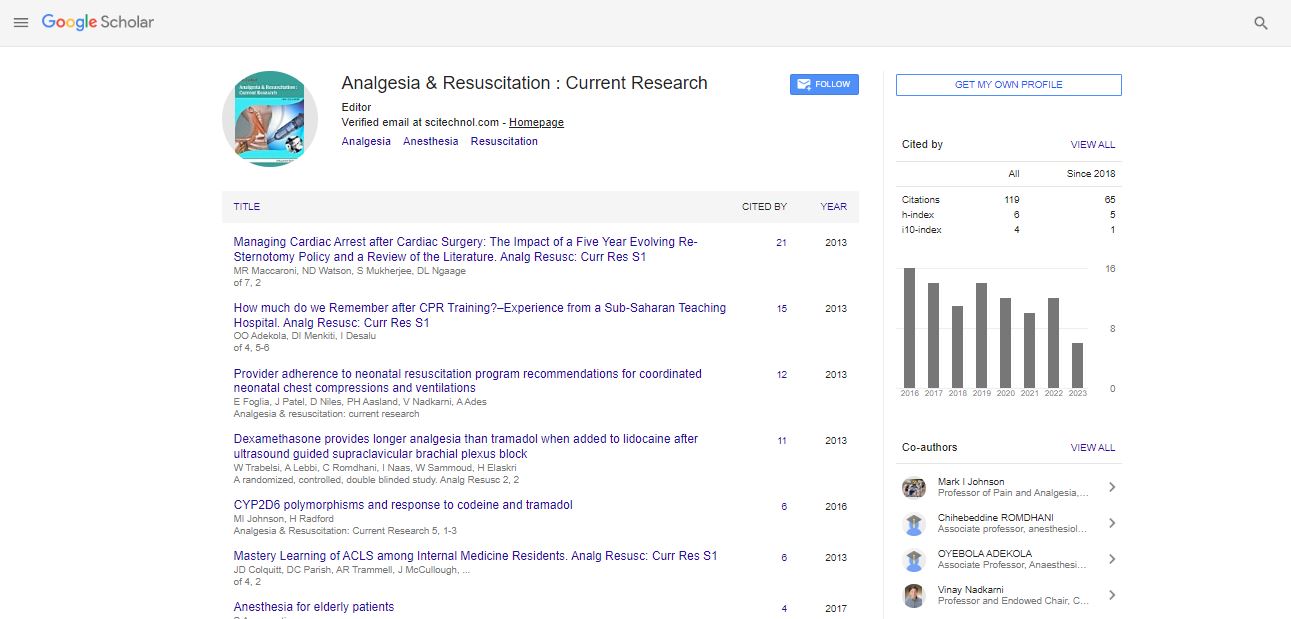The extinction of placebo and nocebo effects
Rongjun Yu, Randy Gollub and Jian Kong
National University of Singapore, Singapore
Massachusetts General Hospital-Harvard Medical School, USA
: Analg Resusc: Curr Res
Abstract
The placebo/nocebo effect can be defined as a positive/negative treatment response to a substance or procedure known to be without any therapeutic effect. Although placebo/nocebo effect has been widely used in scientific research of pain and other domains, most attention has been focused on its short-term effect. Prolongment of an analgesic placebo effect and eradication of a hyperalgesic nocebo effect are crucial to achieve high clinical efficacy. Here, we developed a non-invasive behavioral technique to manipulate the long-lasting effect of initiated placebo/nocebo effect in pain perception. Subjects first learned the association between cues and high/low pain stimulation. Then an identical pain was always coupled with cues, presented either supraliminally or subliminally, in the test session. After that, subjects underwent the extinction stage, in which they received warm stimulations coupled with these cues. Another test session was administrated to test the effect of extinction. We found that significant placebo/nocebo effects after conditioning in both the supraliminal condition and the subliminal condition, although effects in the subliminal condition was significantly smaller than those in the supraliminal condition. Importantly, extinction manipulation erased conscious placebo effect but did not influence conscious nocebo effect and subliminal placebo/nocebo effects. Our study suggests that unconscious placebo/nocebo effects are difficult to override and unlike conscious placebo effect, conscious nocebo effect is more resilient to extinction.
 Spanish
Spanish  Chinese
Chinese  Russian
Russian  German
German  French
French  Japanese
Japanese  Portuguese
Portuguese  Hindi
Hindi 
